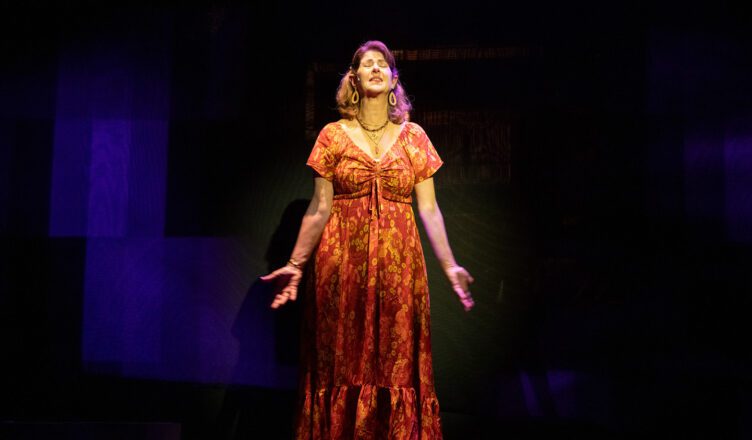Summer, 1976 is next up in GableStage’s arsenal, a season exploring friendship as one of its major themes.
The play serves as a fitting bookend to King James, the first play of their season which examined adult male friendships. Here, we flipped gender and are looking at the ladies.
And just in time for the summer.
At its core, Summer, 1976 is a love letter to the transformative power of human connection—how we’re shaped by the people who come into our lives, even if just for a season.
To quote hip-hop founding father Whodini:
Friends
How many of us have them?
Friends
Ones we can depend on
(FYI — this play is as far from hip-hop as one can possibly venture).
Summer, 1976 themes and review
Meet Diana (Sara Morsey) and Alice (Patti Gardner), two older, very white women in Columbus, Ohio.
The point of view of the play features their older selves reenacting a version of their younger selves in 1976, about forty years later.
Diana is an artist, a feminist and liberated single mother and then Alice, a complacent, somewhat needy and naïve housewife.
Diana and Alice’s friendship is a study in contrasts: bold versus reserved, liberated versus traditional. But playwright David Auburn (Proof) uses their differences to explore the deeper truths about vulnerability and the untraditional wacky ways we find common ground.
The play proclaims that friendships are as defining as romantic relationships or family ties, but they often don’t get the same credit.
The problem here is caring about their friendship. The two characters don’t seem compatible. There’s no chemistry or apparent glue that bonds them together. Their friendship is one of convenience and lacks empathy. Also, they’re messy people. Especially Diana, who is snobby, isolated. She’s a phony and a fraud. Furthermore, actress Sara Morsey plays her in a clumsy way, often snubbing lines and creeping about the stage as if she might trip over something. It is an awkward albeit ambitious performance. Morsey also plays Alice’s husband Doug.
There is a bright spot in this play. Patti Gardner portrays Alice gracefully, with movement, levity and complexity. She’s deeper than she appears and Gardner makes her more likeable than she is.
This play has depth, layers to unfold around memory, friendship and ambition.
But the problem is it’s hard to care, or difficult to pay close attention to crack the layers.
The 2003 Fiesta Bowl
Not to add insult to injury, but the characters are associated with Ohio State University — Diana works there, and Alice dropped out of grad school and her husband professes there. This is personal bias, but to get a University of Miami fan to care about Ohio State is sacrilegious. It’s borderline blasphemous to see a play in Coral Gables about Columbus, Ohio and care.
Ohio State unfairly beat the University of Miami in the Championship football game of 2003, the Fiesta Bowl, a double-overtime thriller in which the worst referee ever (Terry Porter) infamously called a mysterious pass interference call, thus helping OSU secure the victory and ending U of M’s football dynasty.
It’s a thing. We don’t like Ohio State.
On the Bright Side, Summer, 1976
What’s cool about Summer, 1976 is how it shows that the little moments—conversations, laughter, even arguments—can stick with you. It’s nostalgic without being overly sappy, and it makes you think about your own life. Who are the people that changed you? What memories pop up as you age? What people come and what people go? How and when did that happen exactly?
The breezy play (90 minutes, no intermission) sneaks up on you. It feels simple, but by the end, you’re thinking about those summers in your life that shaped who you are.
And there’s something to say about nostalgia.
Summer, 1976 is now playing at GableStage until April 20th – for more info and tickets click here.
Acknowledgements
This article’s published with the support of the Miami-Dade County Department of Cultural Affairs and the Cultural Affairs Council, the Miami-Dade County Mayor and Board of County Commissioners.


